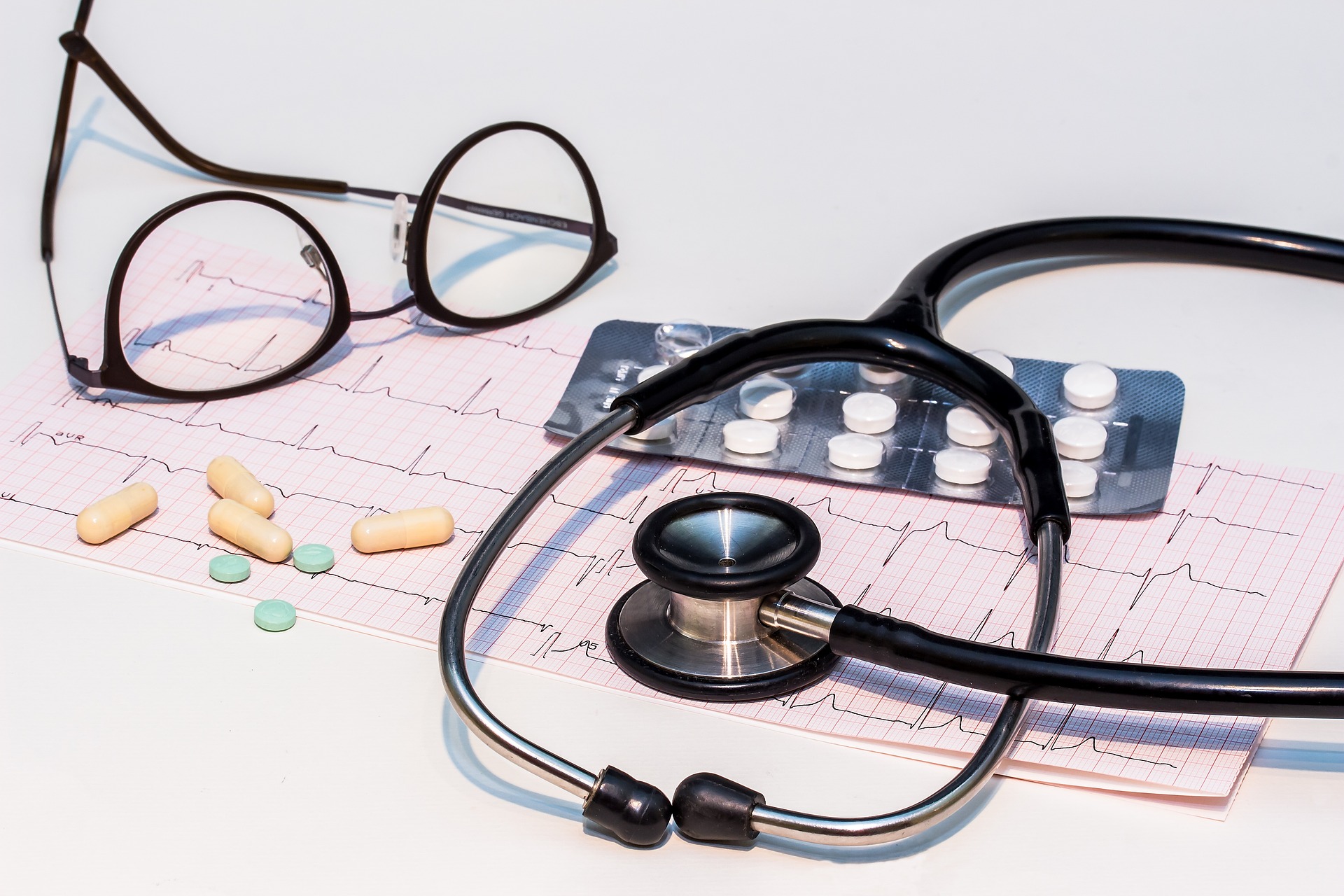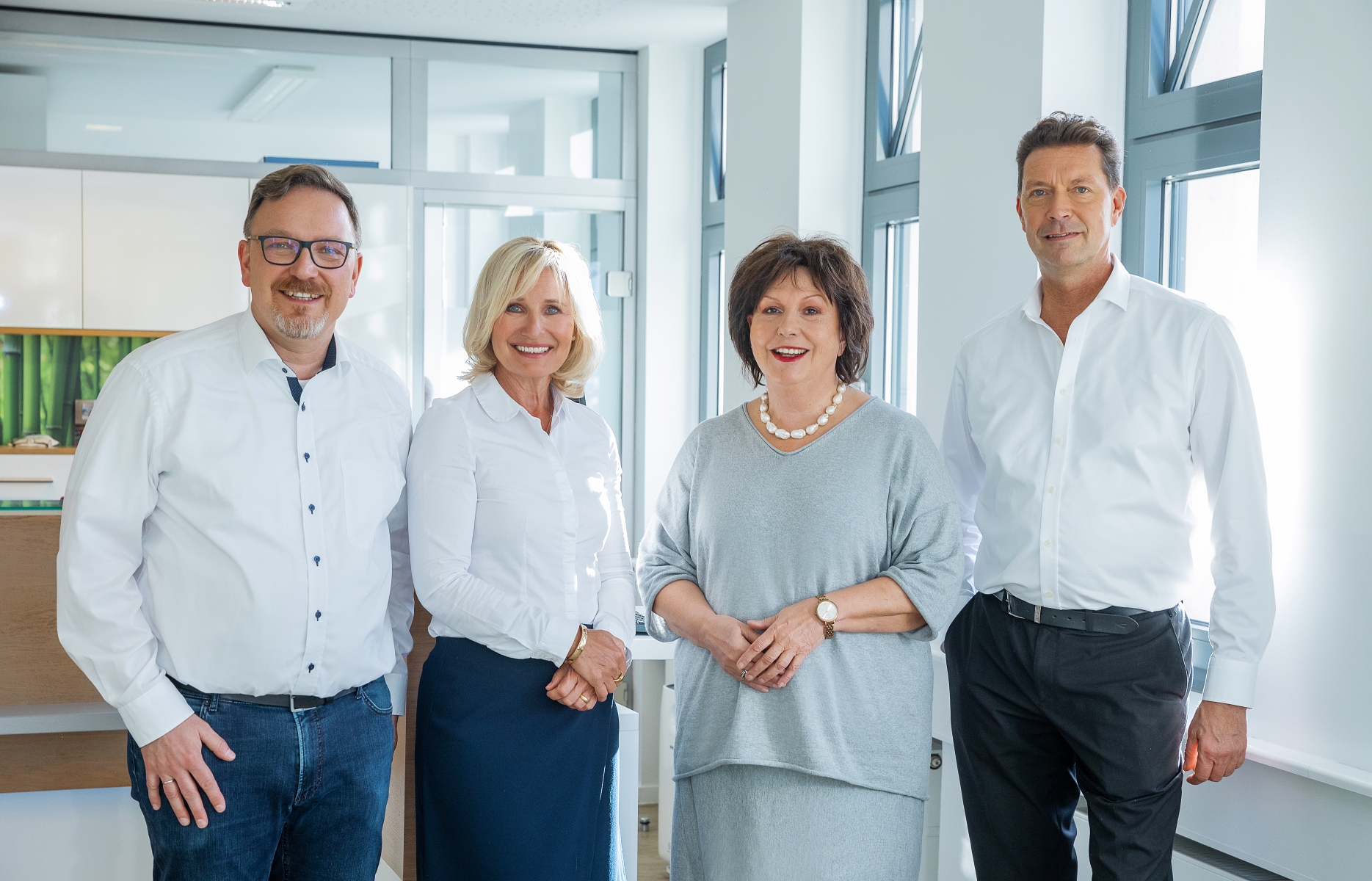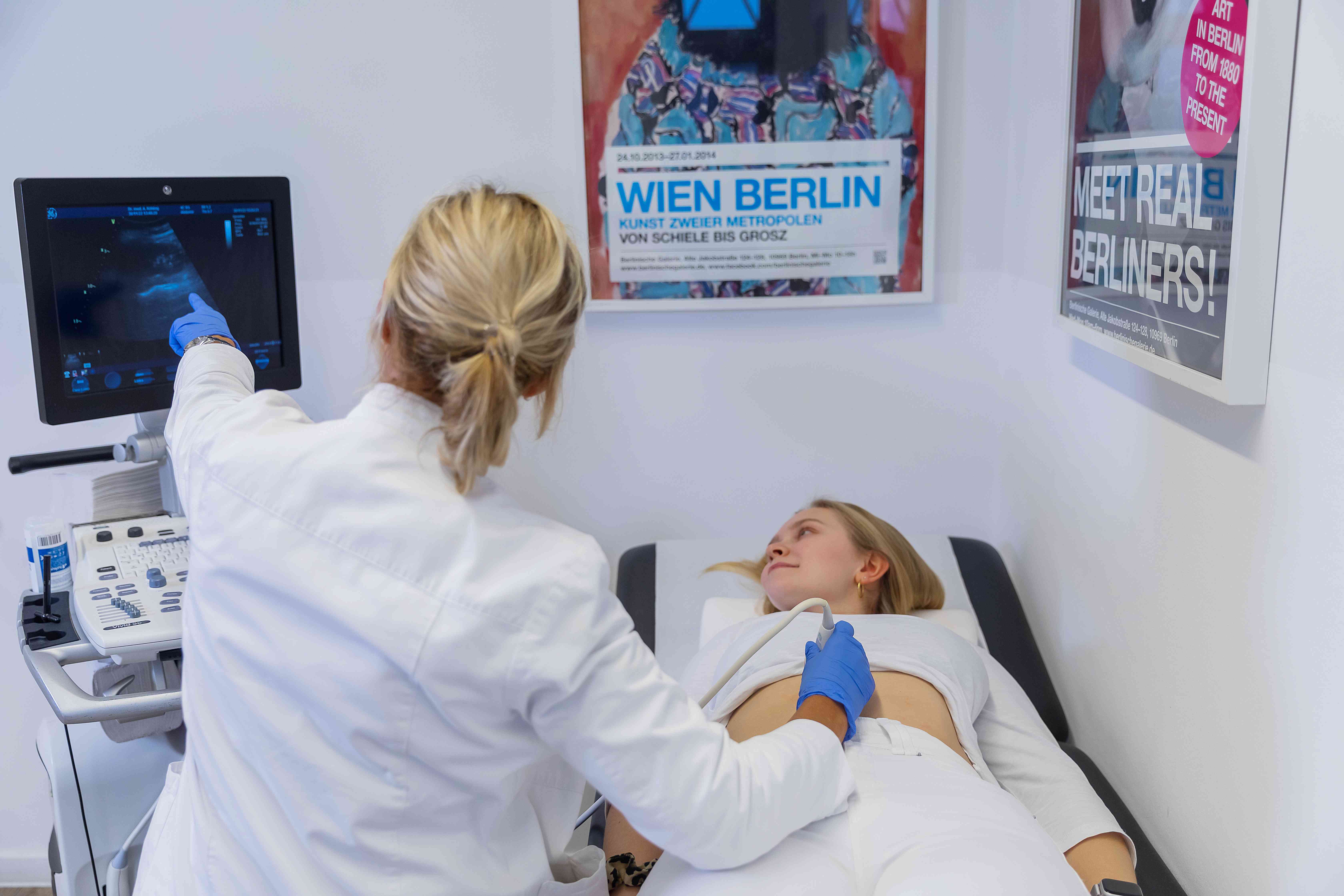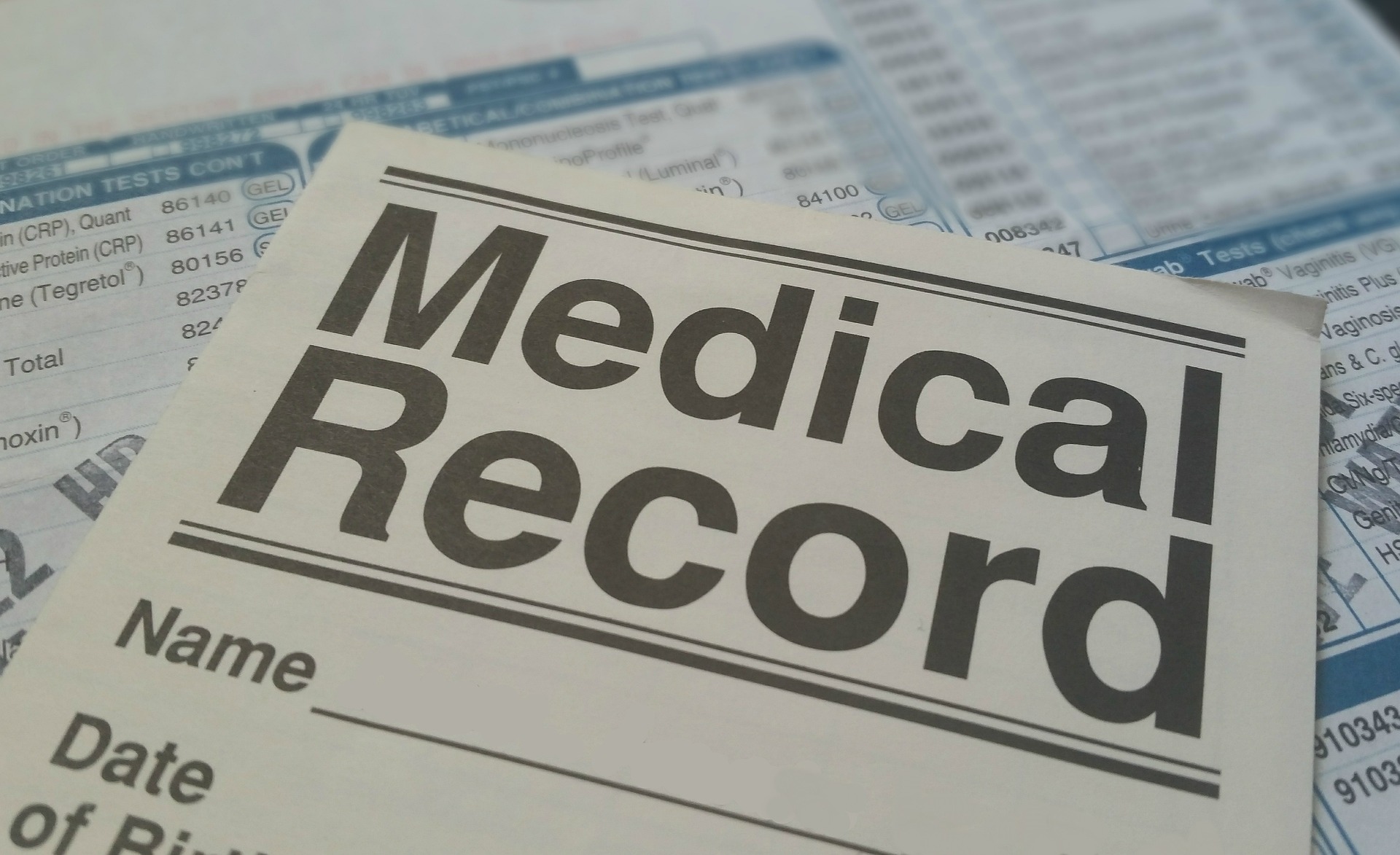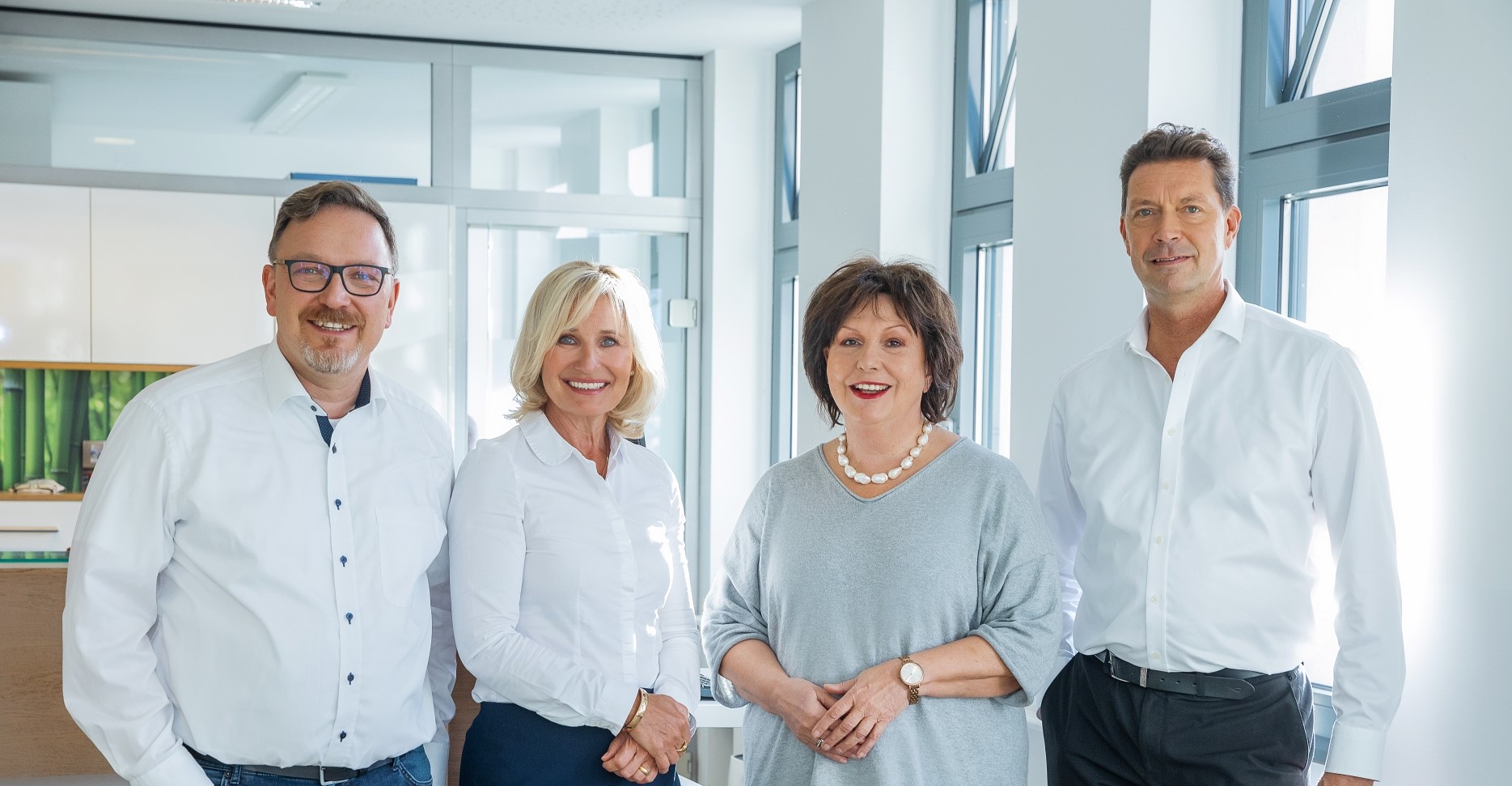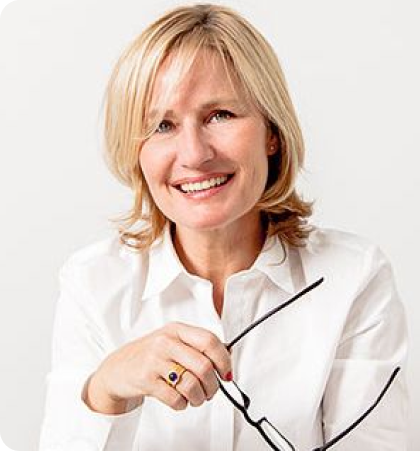»Sit mens sana in Corpore sano« (Juvenal, Roman poet, 1st century AD)
That there may be a healthy mind in a healthy body
Mental fitness and physical well-being – if possible until old age – have for millennia been mankind's most profound desire.Modern medicine can provide the means to achieve this goal: The medical Check-Up is not only meant to diagnose existing illnesses, but first and foremost to help in the early detection of possible risk factors of vascular diseases, metabolic disorders, and cancer prevention. This leads to an individual recommendation for an improved diet, physical activity and a healthy lifestyle.
The comprehensive Check-Up has been the main focus of our medical practice for over 15 years, and we conduct over 2000 Check-Up examinations annually. Designed after the latest diagnostic and therapeuthic findings these Check-Ups are carried out with ultramodern equipment, following the principles of the Mayo-Clinic Check-Up.
To what extent these examinations are carried out is the result of individual planning, taking into account the age, pre-existing conditions, habits, individual risk factors and - last but not least - requests of the patient.
How is a Check-Up performed?
We also perform stool analyses for tumor diseases, infections, enzymatic disorders, or disruptions in the intestinal flora, as well as urine analyses to detect kidney and bladder diseases.The blood, urine, and stool analyses are conducted in our state-of-the-art and certified laboratory in Düsseldorf.
All ultrasound examinations are performed using the latest color-duplex ultrasound equipment from GE (General Electrics), you can follow the examination simultaneously on the patient monitor!
One in three patients suffer from thyroid nodules or thyroid inflammation that can lead to severe metabolic disorder and, in rare cases, cancer.
More information: Sonography
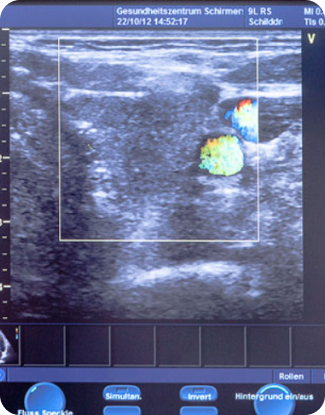
Detection of vascular narrowing and calcification, risk assessment of stroke and other vascular diseases.
More information: Doppler method
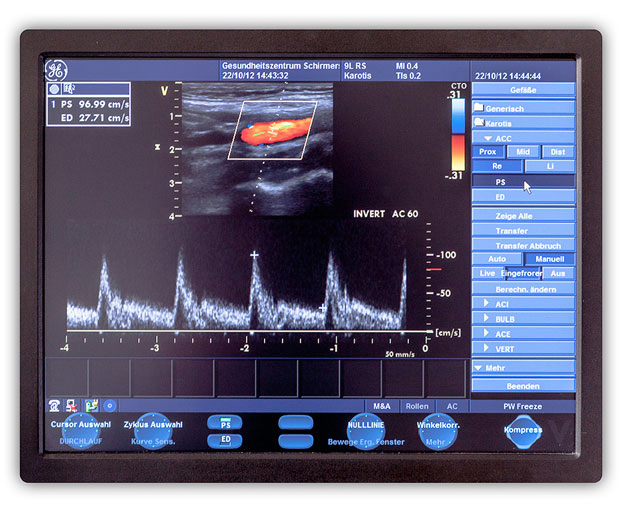
Early detection of cancer, particularly blood cancer, and detection of chonic infectious diseases.
More information: Sonography
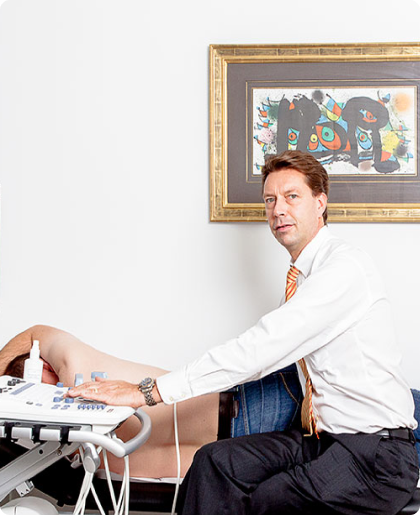
Examination of cardiac power, heart valves, congenital heart defects, circulatory problems, blood pressure stress, evidence of heart attacks and heart failure.
More information: Echocardiography
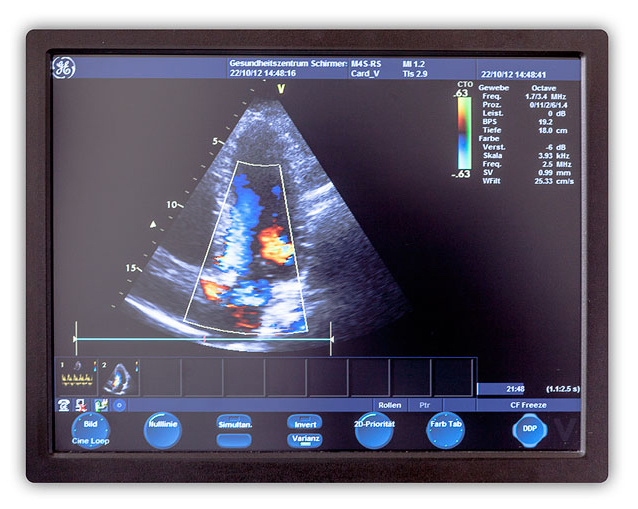
Early detection of diseases of the liver, gallbladder, pancreas, kidneys, spleen, abdominal vessels, stomach/intestine and urinary bladder with uterus/prostate.
More information: Sonography
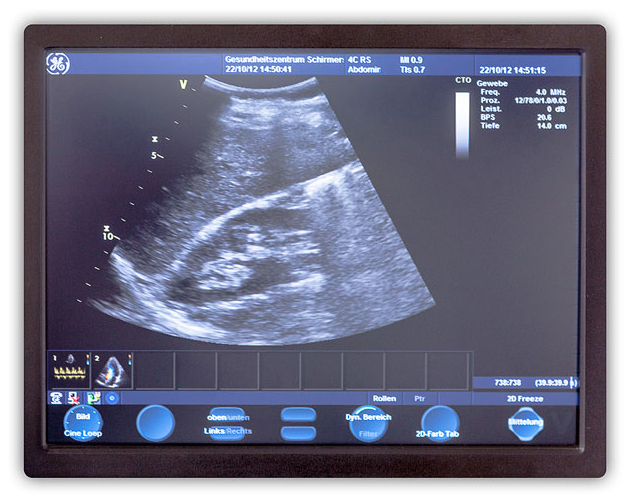
Detection of circulatory disorders, risk assessment of vascular diseases, examination of varicose veins.
More information: Doppler method
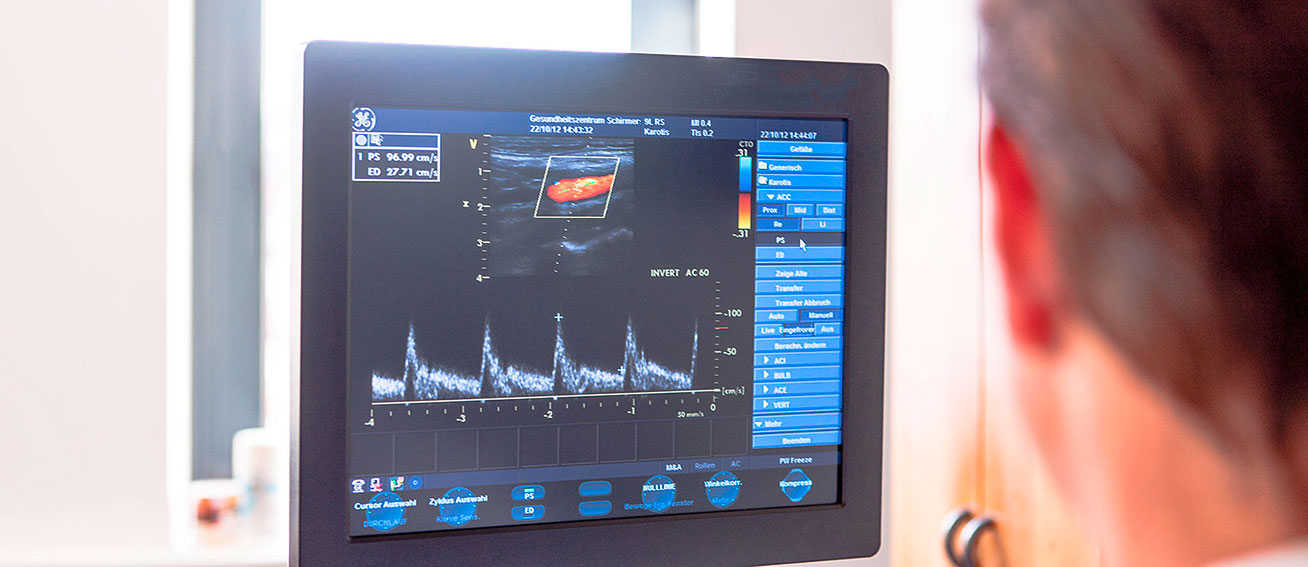
- A stress-ECG with oxygen measurement
- A digital lung function test that measures lung volumes and respiratory capabilities
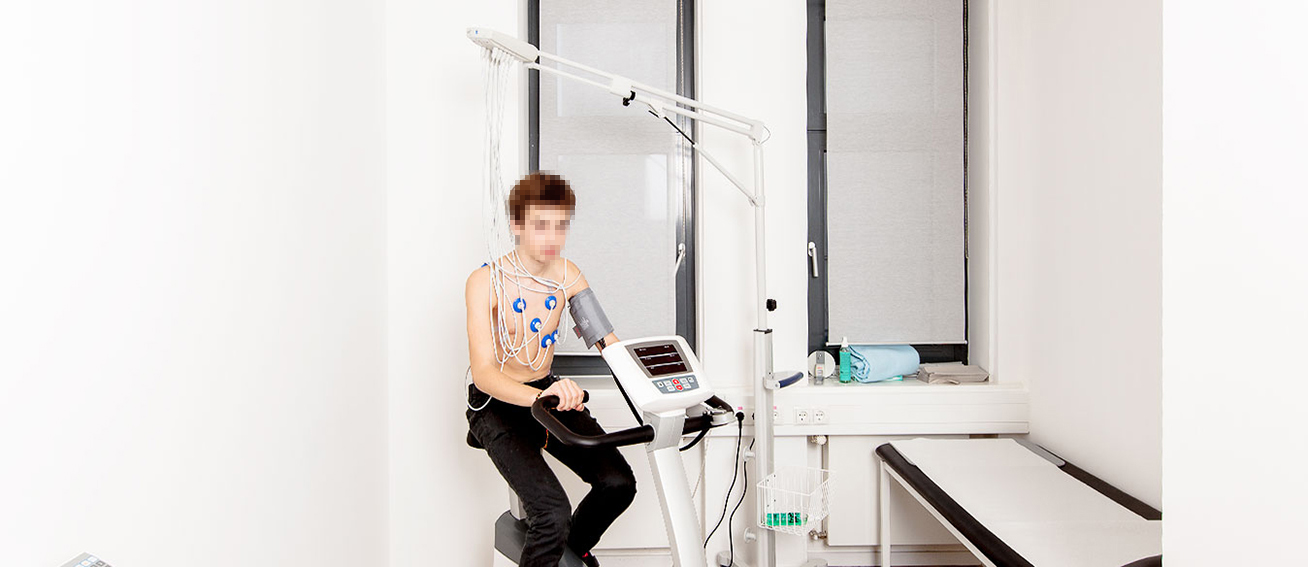
If medically indicated, direct follow-up appointments will be arranged with experienced specialists who cooperate with us personally:
- All radiological examinations (including MRI, CT, bone density measurements)
- Gastrointestinal endoscopies (including endoscopic ultrasound and capsule endoscopy)
- Cardiological examinations (cardiac catheterization, cardiac CT, cardiac MRI)
- Orthopedic examinations
- ENT medical special examinations
- Ophthalmological examinations
- Endocrinological examinations
- Nephrological examinations
- Oncological examinations and therapies of any kind
How often should a Check-Up be done?
Individuals who already have a high risk profile should undergo regular check-ups every year or even every 6 months, depending on their individual risk profile.


How much does a Check -Up cost?
We would be happy to provide you with a cost estimate and assist you with the reimbursement process through your insurance.
Patients covered by statutory health insurance over the age of 35 are entitled to a health screening every 2 years, the scope of which depends on any pre-existing conditions. If you wish to have further examinations as part of a comprehensive Check-Up with additional services, we would be happy to provide you with a cost estimate - we always charge according to the 1.0 basic rate in accordance with the German Medical Association Fee Schedule (GOÄ)!

